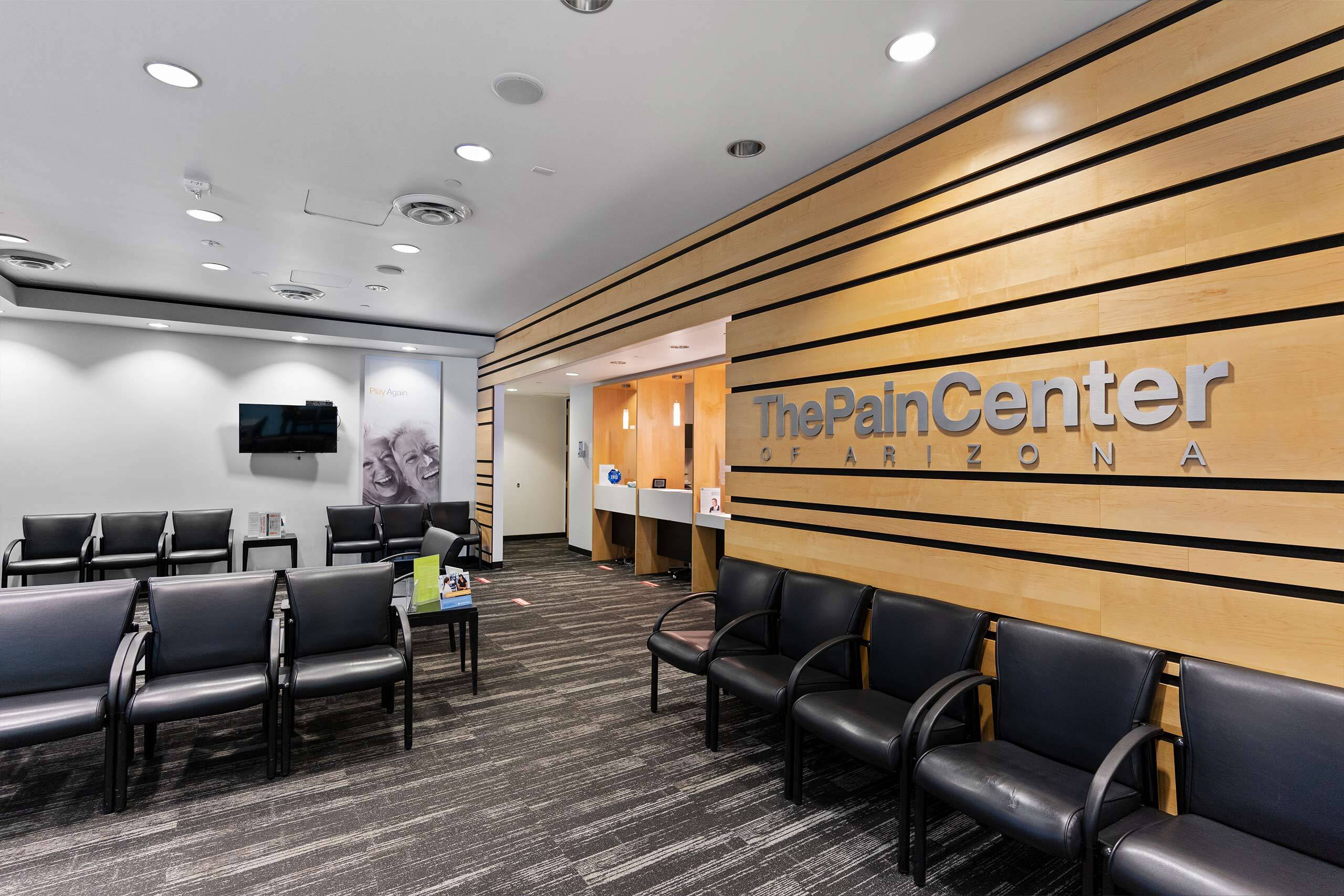Trigger Point Injection
Trigger point injections provide prompt, symptomatic relief to painful areas of muscle containing small, contracted knots called trigger points. These injections may contain a local anesthetic, saline solution or corticosteroid for optimal relief. When administered, a trigger point injection can loosen and subsequently eliminate the hard, palpable nodes. A dry-needle technique may also be used if the patient does not require the trigger point injection solution. Trigger point injections can be used on many muscle groups and are effective in treatment of fibromyalgia, tension headaches and myofascial pain syndrome.

What is Trigger Point Injection?
Trigger point injections provide prompt, symptomatic relief to painful areas of muscle containing small, contracted knots called trigger points.
What Types of Pain Does Trigger Point Injection Treat?
Muscle pain in your arms, legs, lower back, and neck.
It may also treat:
- Fibromyalgia
- Tension headaches
- Myofascial pain
How Do Trigger Point Injection Work?
When administered, a trigger point injection can loosen and subsequently eliminate the hard, palpable nodes. A dry-needle technique may also be used if the patient does not require the trigger point injection solution.
Trigger point injections can be used on many muscle groups and are effective in the treatment of fibromyalgia, tension headaches, and myofascial pain syndrome.
What Medicine is Used in Trigger Point Injections?
These injections may contain a local anesthetic, saline solution, or corticosteroid for optimal relief.

Expectations and Recovery
You can use your muscle immediately after your procedure, but you’re advised to avoid any strenuous activity for a few days.
Depending on your case, you may receive multiple injections in a single session. Afterward, future injections are typically limited to one session every two months.
What are Common Causes of Arm Pain?
Common conditions that cause chronic arm pain include:
- Muscle aches due to exercise or overuse
- Repetitive joint use (bursitis or joint inflammation)
- Bone fractures
- Joint dislocations
- Peripheral vascular disease
- Muscle, ligament, or tendon sprain or strain (tendinitis)
- Fibromyalgia
- Skeletal structure irregularities
- Arthritis
- Cardiac disorders or heart attack (angina)
- Angina pectoris that radiates to your arm
- Nerve damage
- Spine conditions including cervical disc herniation
- Diabetic neuropathy
- Osteoporosis
- Infection
- Carpal tunnel syndrome
- Rotator cuff injury
- And more
What Arm Pain Symptoms Should I Report to My Doctor?
Be sure to inform your doctor if you are experiencing the following symptoms of arm pain:
- Pain in the wrist, elbow, or shoulder
- Arm weakness
- Pain in either or both arms
- Upper arm pain
- Sudden arm pain in your right arm
- Redness or discoloration of the skin on your arm
- Swelling of your arm, wrist, or elbow
- Joint stiffness
- Arm skin that’s warm to the touch
- Itching, throbbing skin
- Pain that worsens with exercise
- Numbness, tingling
- Muscle pain, aches
- Tenderness
- Reduced range of motion
- Muscle cramps, sore arm
Other Conservative Treatments for Arm Pain
Additional procedures typically performed to treat chronic arm pain include:
- Epidural Steroid Injections
- For short-term pain relief (typically 3-4 months), steroid injections can be used to treat neck and back pain and can be combined with physical therapy and exercise for maximum benefit.
- Nerve Blocks
- Therapeutic nerve blocks contain local pain medications that can control acute pain.
- Radiofrequency Ablation (Rhizotomy)
- A minimally invasive procedure in the neck, middle or lower back, that destroys nerve fibers in the back that carry pain signals. It is performed under fluoroscopy (live x-ray).
- Spinal Cord Stimulation
- If other therapies aren’t effective for treating your pain, an implantable pain management device can be an option. These devices administer mild electrical pulses to block the transmission of pain.


Get the care you need within 24 hours*
We know when you’re looking for relief for your chronic pain, you can’t wait any longer than you already have. This is why we can schedule you with an appointment within 24 hours at most of our pain centers across the Valley, so you can start your journey to life-long pain relief as soon as tomorrow.



